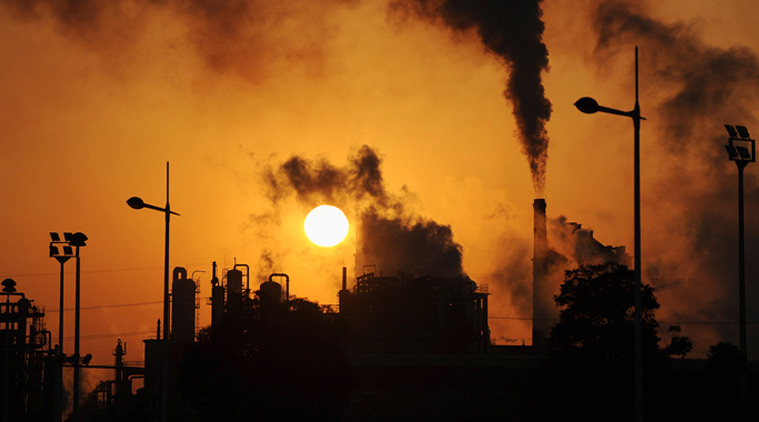The National Pollution Control Day is celebrated every year on 2nd of December in India in order to give the honor and memorialize the thousands of human beings who had lost their existence because of the Bhopal gas calamity. Bhopal gas tragedy was happened in the night of 2nd and 3rd December in the year 1984 because of the unintentional discharge of the poisonous chemical known as Methyl Isocyanate (also called MIC) as well as some other chemicals released from the Union Carbide Chemical Plant positioned in the city. According to the report, more than 500,000 people (of which around 2259 were died immediately) were exposed to the poisonous gas of MIC. Later, it was declared by the government of Madhya Pradesh that around 3,787 deaths were related to the gas tragedy. In the next 72 hours, around 8,000 to 10,000 people were died whereas around 25,000 people were died later because of the gas-related diseases. It was identified as the biggest industrial pollution disaster of the history worldwide which needed serious preventive measures suddenly in order to stay away from such type of disaster in the future.
Factors of Causing Gas Tragedy
Storing MIC in the big tanks in place storing in to many smaller drums.
Use of more dangerous chemicals (MIC) in place of lesser ones.
Poor preservation of the gas after the stoppage of production in 1980s by the plant.
Presence of corroding material in the pipelines
Malfunctioning of the various safety systems.
Manual dependence for the operations, shortage of expert operators as well as lack of disaster management plans.
Other Tragedies
Other big tragedies in the history of world are:
The Three Mile Island tragedy of the year 1979 of the American nuclear power station. It was the big tragedy of the history which occurred at the Nuclear Generating Station of the Three Mile Island in the Dauphin County, Pennsylvania (near the Harrisburg)
Another big tragedy of the history was the Chernobyl disaster of the year 1986 in the Ukraine.
After Bhopal Gas tragedy in India, the other immediate disaster was the Oleum gas leak which occurred in the Shriram Food & fertilizes Ltd complex in Delhi.
Why National Pollution Control Day is celebrated
One of the leading factors of celebrating the national pollution control day every year is to manage and control the Industrial Disaster as well as prevention of the pollution (created by the industrial processes or manual negligence) of water, air and soil. Varieties of laws are declared by the Government all over world in order to seriously control and prevent the pollution. National pollution control day is celebrated every year on 2nd of December to make aware the people and most importantly to aware the industries about paying great attention towards the need of Pollution Control Acts.
What are the Prevention Methods taken by the Indian Legislation?
Indian government has launched the variety of serious acts and rules for the control and prevention of pollution all over the India. Some of are:
Water (Prevention & Control of Pollution) Act of 1974
Water (Prevention & Control of Pollution) Cess Act of 1977
Air (Prevention & Control of Pollution) Act of 1981
Environment (Protection) Rules of 1986
Environment (Protection) Act of 1986
Manufacture, Storage and Import of Hazardous Chemical Rules of1989
Hazardous Waste (Management & Handling) Rules of 1989
Manufacture, Storage, Import, Export & Storage of Hazardous Micro- Organisms Genetically Engineered Organisms or Cells Rules of 1989
Chemical Accidents (Emergency, Planning, Preparedness and Response) Rules of 1996
Bio-Medical Waste (Management & Handling) Rules of 1998
Recycled Plastics Manufacture & Usage Rules of 1999
Ozone Depleting Substances (Regulation) Rules of 2000
Noise Pollution (Regulation & Control) Rules of 2000
Municipal Solid Waste (Management & Handling) Rules of 2000
Batteries (Management & Handling) Rules of 2001.
Maharashtra Bio- Degradable Garbage (Control) Ordinance of 2006
Environment Impact Assessment Notification of 2006
National Pollution Control Board
The well functioning or malfunctioning of all the laws and rules are checked by the National Pollution Control Board (NPCB) or Central Pollution Control Board (CPCB) which is the governing body in India for the prevention of pollution. It always checks that whether the environment friendly technologies are utilized by all the industries in the right way or not. Maharashtra has its own control board called Maharashtra Pollution Control Board (MPCB) as it urgently required the pollution control methods as it is one of the big states where the rate of industrialization is increasing very rapidly. The natural resources like water, air, land or forest are being affected speedily by the different types of pollution which are very necessary to stop immediately by implementing the rules and regulations in the right way.
What are the Control Measures?
Urban Waste water treatment and reuse project
Scientific treatment of solid waste and its management
Reduce generation of waste
Sewage treatment facility
Reuse of waste and producing energy from the waste.
Biomedical waste treatment facility
Electronic waste treatment facility
Water supply projects
Resources recovery project
Energy saving projects
Hazardous waste management in urbanized areas
Projects on the Clean Development Mechanism
There are many other efforts as well taken by the state government by making the pollution controlling Policy, proper implementation of rules and all the preventive measures of pollution. Industries are the first who must follow all the rules and regulations launched by Authority to control and reduce the pollution.
(Ref:http://www.indiacelebrating.com/events/national-pollution-control-day/ & The Indian Express)
